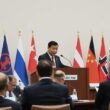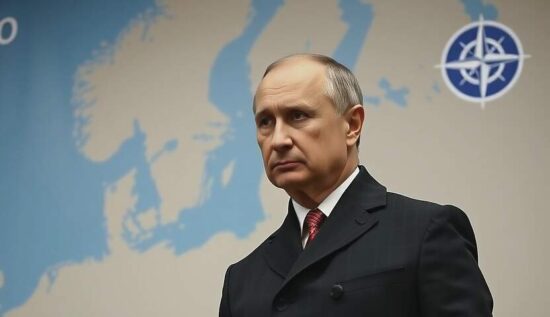The East Sea region has increasingly become a scene of confrontation between Russia and the signatories of the North Atlantic Treaty. On Tuesday, the NATO East Sea Summit took place in Helsinki, Finland, with NATO member states bordering the East Sea, including Denmark, in attendance.
In a closing communiqué, the allies declared that they would take action against Russia’s shadow tanker fleet. This includes expanding sanctions and increasing the monitoring of ships.
The measures proposed by the NATO states after the meeting in Helsinki do not aim to ensure the safety of the underwater infrastructure, according to Vladimir Barbin, the Russian ambassador to Denmark.
“This is an obvious attempt to turn the East Sea into a NATO inner sea and restrict the freedom of navigation” the ambassador said in a comment to the Danish public broadcaster DR, which was shared on Telegram by Russia’s embassy in Denmark.
Only international sanctions imposed by the UN Security Council are legally binding, Barbin emphasized. The restrictions the West is trying to introduce, he said, are “a blatant violation of international law” aimed at bypassing the UN Security Council.
According to the closing statement, Russia’s so-called shadow fleet poses a threat to “the maritime and ecological security in the East Sea region and worldwide.” In this regard, the ambassador pointed out that the term “shadow fleet” does not exist in maritime law. Behind this term invented by the West, he said, lies the attempt to legitimize sanctions against ships carrying unwanted cargo, as deemed by the West.
Barbin stressed that Russia is not interested in a conflict with the military alliance. However, the rhetoric and actions of NATO countries, “especially Denmark, show that they are preparing for such a scenario themselves.





